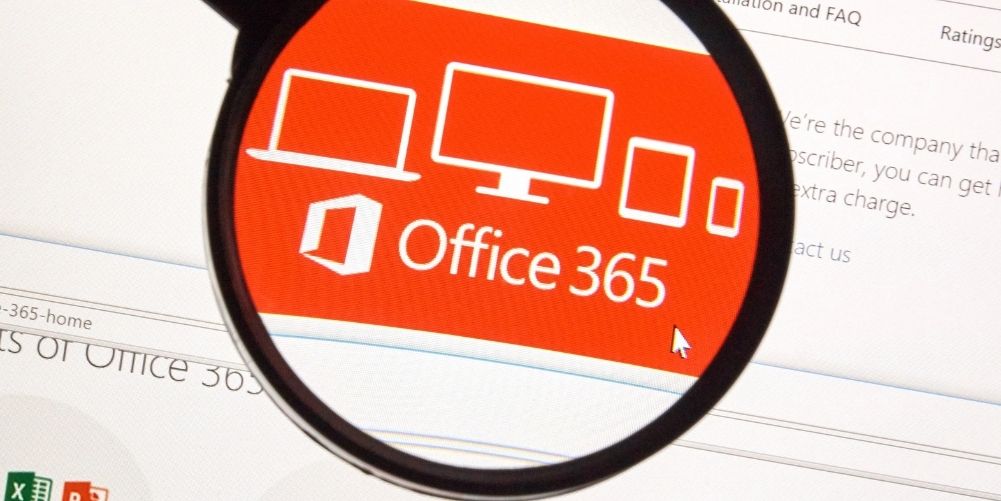Microsoft 365 has become a daily essential for many businesses. It offers cloud-based email, document storage, collaboration tools, and more. With so much information flowing through the platform, it’s easy to assume your data is automatically safe just because it’s in the cloud.
But here’s the truth: Microsoft 365 does not offer comprehensive data backup.
If an employee accidentally deletes a client contract, if ransomware encrypts your cloud-stored documents, or if Microsoft experiences an unexpected service disruption—your business could lose critical information with no way to recover it.
That’s not just a technical problem, it’s a business problem. Lost data can lead to compliance failures, missed deadlines, costly downtime, and even reputational damage.
A False Sense of Security: Microsoft 365’s Real Limitations
At first glance, Microsoft 365 looks like it checks all the boxes for secure document storage. Files are stored in the cloud, collaboration is seamless, and Microsoft does offer limited versions and recycling bins. But those protections don’t add up to a true backup solution.
Retention Isn’t the Same as Backup
Microsoft’s data retention policies are short-term, ranging from 30 to 93 days depending on the service and settings. If a file is deleted—or worse, maliciously removed—and you don’t realize it within that timeframe, the data is gone.
Microsoft even states in its Shared Responsibility Model that data protection and backup are the customer’s responsibility. Their job is to ensure availability of the platform, not to guarantee the long-term safety of your business’s data.
Data Can Be Permanently Lost from Simple Mistakes
Whether it’s dragging a folder to the wrong location or emptying a recycle bin, human error remains the leading cause of data loss—accounting for nearly 60% of incidents.
If a team member accidentally deletes the wrong file or overwrites an important document, there’s a limited window to catch it before it’s gone for good. Most businesses don’t realize something’s missing until it’s too late.
Cybercriminals Are Targeting the Cloud
Ransomware attacks have become more sophisticated—and Microsoft 365 is no exception. Cloud storage doesn’t make your files invincible. In fact, if your Microsoft account is compromised, threat actors can encrypt, delete, or exfiltrate your files in minutes.
Here’s the kicker: Microsoft 365 doesn’t offer ransomware rollback or guaranteed recovery. If your data is compromised in the cloud, you may have no choice but to start from scratch—or pay the ransom.
Why Backup & Disaster Recovery Should Be Part of Your Security Strategy
Backup and disaster recovery (BUDR) isn’t just an add-on—it’s a critical part of a well-rounded cybersecurity plan. That’s why Deerwood Technologies includes BUDR as a core component of its managed security service.
When your backup strategy is integrated into a broader security framework, your business is better protected from every angle—whether it’s ransomware, human error, system failure, or compliance risk.
What Deerwood’s Managed Security Service Covers
Deerwood’s managed security offering provides comprehensive, enterprise-level protection designed specifically for small to mid-sized organizations. It’s built to reduce risk, support compliance, and keep your operations running without interruption.
Our managed security service includes:
- Managed Backup with Active Ransomware Protection & Restore Testing
- 24/7 security operations center (SOC) monitoring
- Managed firewall and network protection
- Endpoint security across all user devices
- Server and desktop patch management
- Security awareness training for employees
- Compliance support and audit preparation
It’s a complete, layered approach to cybersecurity—tailored to your business needs.
Integrated BUDR with Active Ransomware Protection
As part of this service, Deerwood delivers automated, secure, and tested backup and disaster recovery to ensure your data is always recoverable.
Key features include:
- A strategic security roadmap
- Security governance framework, policy and procedures
- Extensive IT security posture reporting
- Air-gapped, immutable backups for protection against ransomware
- Frequent, automated backup cycles to keep data current
- Rapid recovery capabilities to minimize downtime
- Secure cloud storage that supports industry compliance
- Regular restore testing to ensure everything works when it matters most
- Security threat and vulnerability management
- Network incident response planning, training and management
With this built-in protection, your business is positioned to recover quickly from any disruption—without compromising operations, compliance, or client trust.
Let’s Protect What Keeps You Moving
You rely on your data every day. Don’t leave its safety to chance—or to a platform that was never designed to provide true protection.
Schedule an appointment to discuss your Backup & Disaster Recovery with the Deerwood Technologies team today.
We’ll evaluate your current systems, identify gaps, and show you exactly how to safeguard your most valuable digital assets.
FAQs
1. Does Microsoft 365 back up my data automatically?
No. Microsoft 365 offers limited retention policies, not full data backups. Once a file or email is deleted and falls outside those retention windows, it may be unrecoverable.
2. Can ransomware affect data stored in Microsoft 365?
Yes. If a user account is compromised, ransomware can encrypt or delete files stored in Microsoft 365. Without a separate backup, that data may be lost permanently.
3. What’s the difference between cloud storage and backup?
Cloud storage syncs files but doesn’t guarantee long-term recovery. Backup solutions create secure, versioned copies of your data that can be restored after accidental deletion or cyberattacks.
4. How often should business data be backed up?
Ideally, backups should run automatically and frequently to ensure minimal data loss. Scheduled backups reduce the risk of gaps during a disaster.
5. Why is backup and disaster recovery important for small businesses?
Small businesses are frequent targets for cybercrime. Without a recovery plan, data loss can lead to downtime, compliance issues, or even permanent closure.

